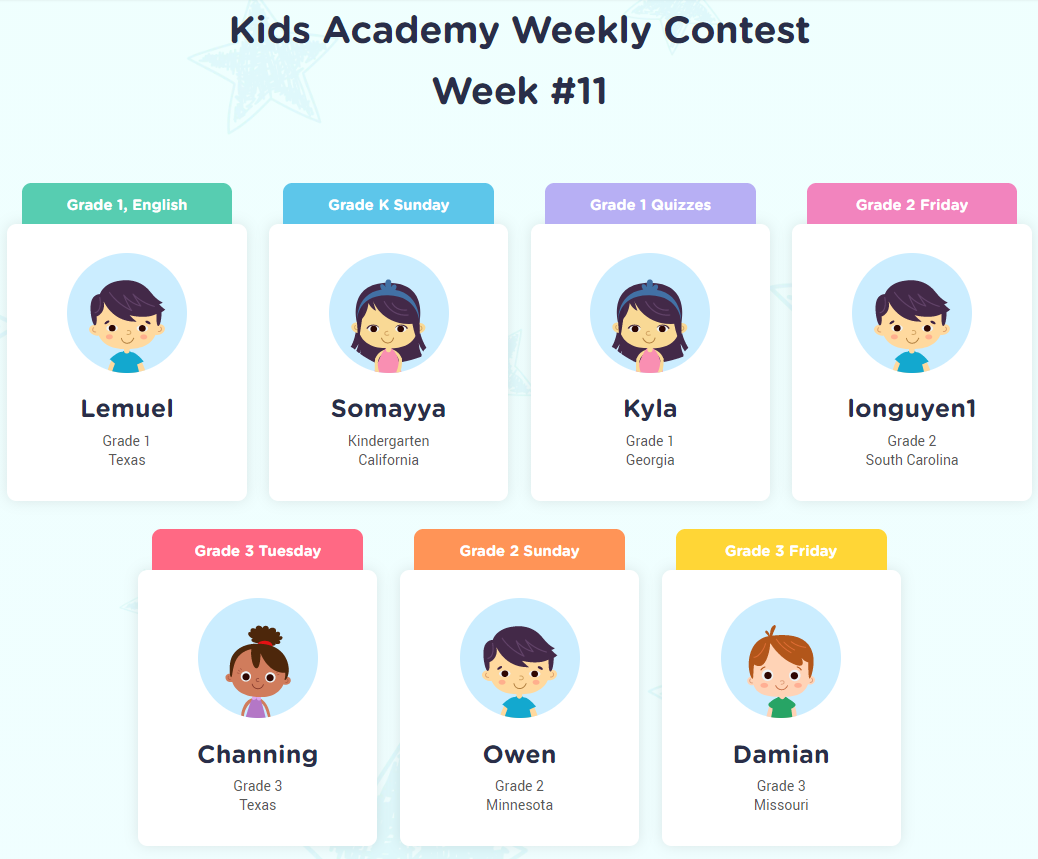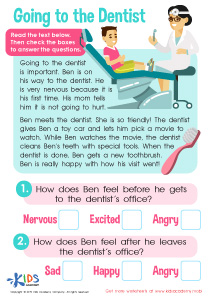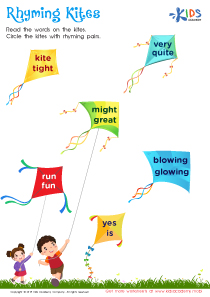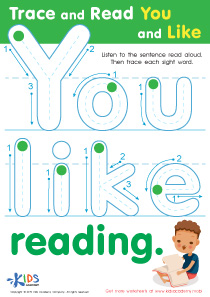Logical Reasoning Normal Grade 1 Reading Worksheets
5 filtered results
-
From - To
Introduce your first graders to the world of critical thinking with our Logical Reasoning Normal Grade 1 Reading Worksheets. These engaging activities are designed to enhance reading comprehension and logical thinking skills through a variety of fun exercises. With colorful illustrations and age-appropriate scenarios, our worksheets encourage young learners to analyze information, identify patterns, and make informed decisions. Perfect for classroom or at-home learning, these tools help build a strong foundation in reading and problem-solving. Help your students blossom academically with our expertly crafted worksheets that make learning enjoyable and effective. Start their journey to logical reasoning today!
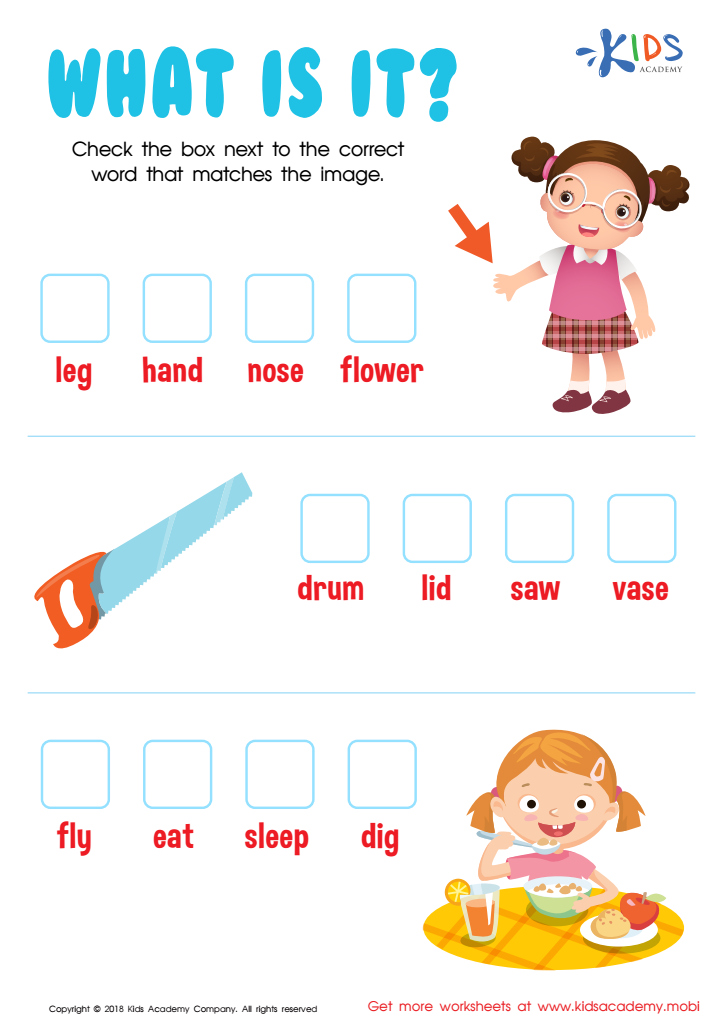

What Is It? Worksheet
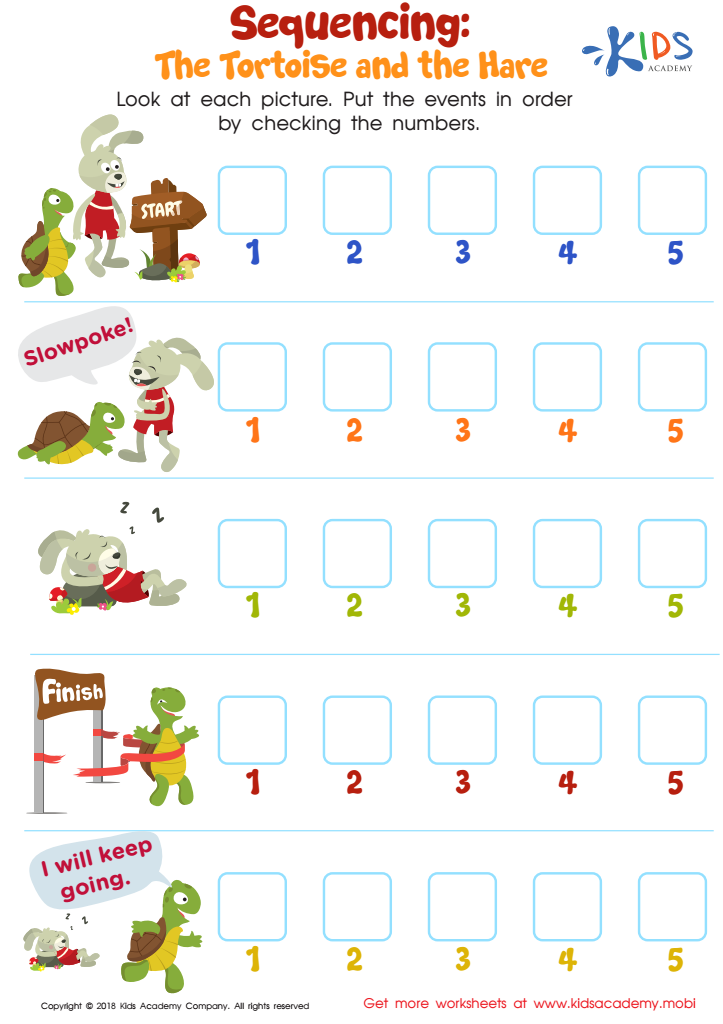

Sequencing: The Tortoise and the Hare Worksheet
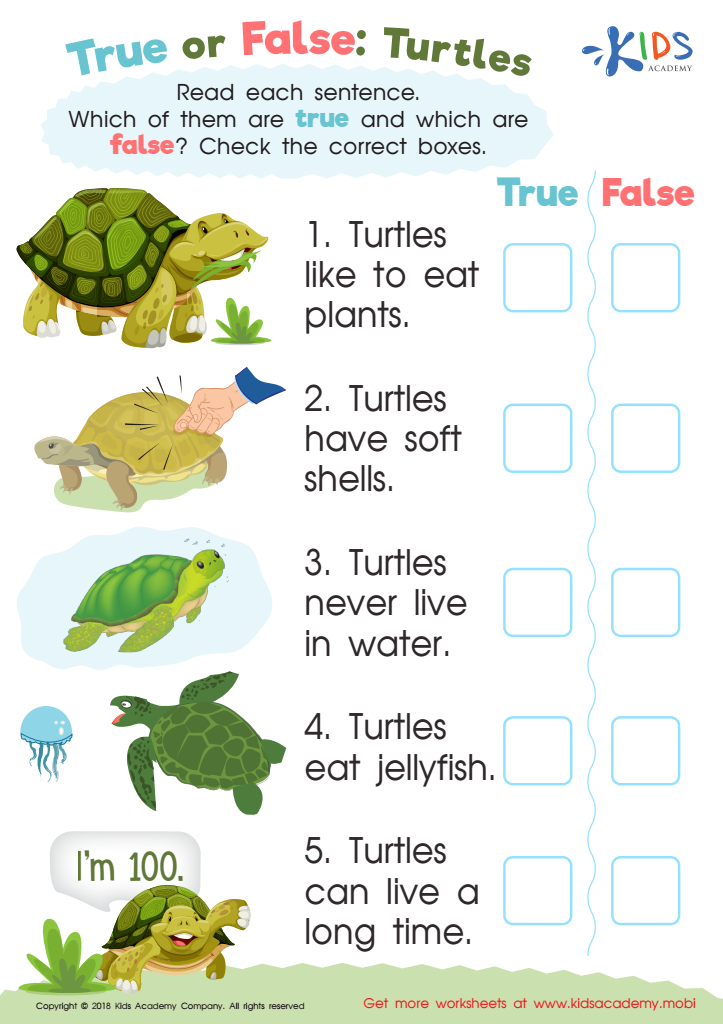

True or False: Turtles Worksheet
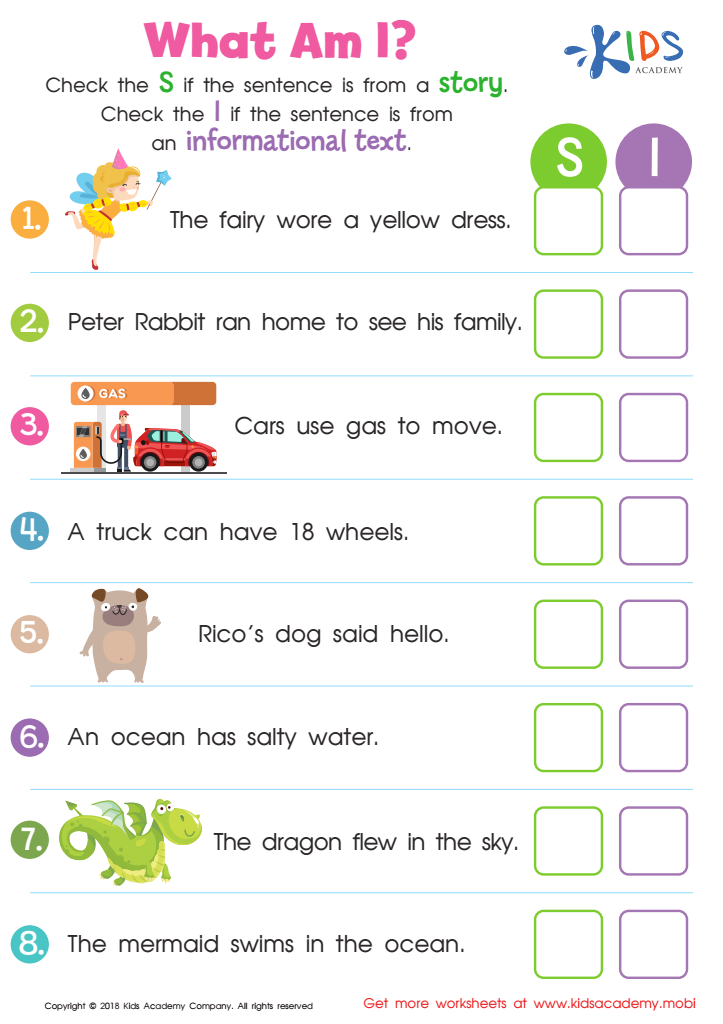

What Am I? Worksheet
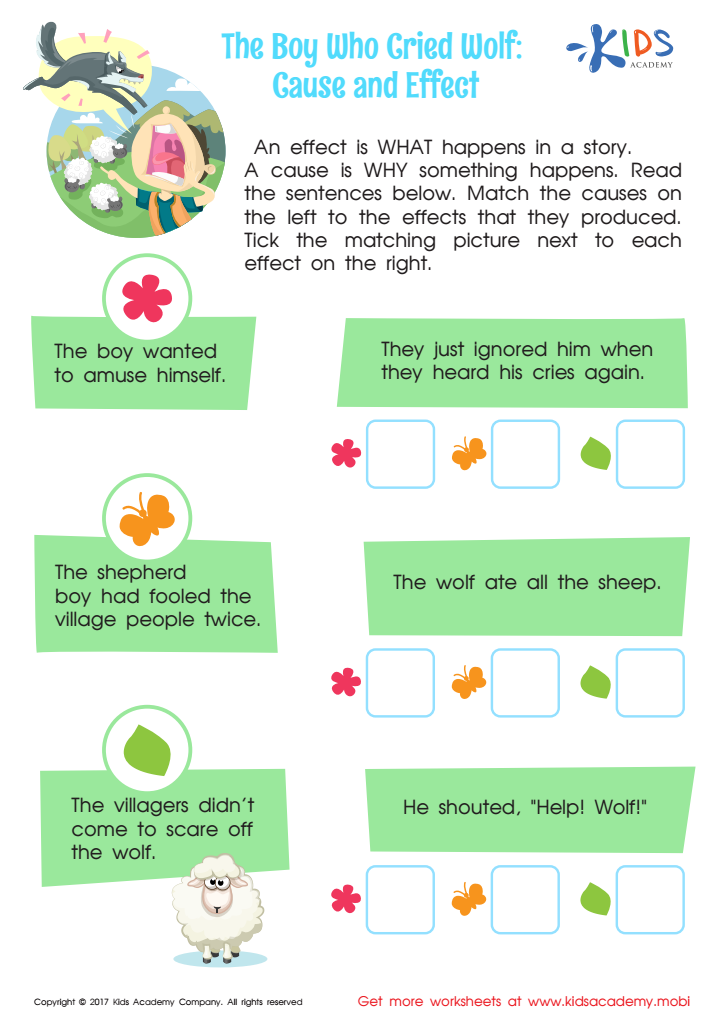

The Boy Who Cried Wolf: Cause and Effect Worksheet
Logical reasoning is foundational to a child's cognitive development and underpins many educational achievements. For first graders, logical reasoning skills are crucial because they influence abilities in reading comprehension, problem-solving, and mathematical thinking.
When parents and teachers focus on nurturing logical reasoning in first-year students, they help children develop the ability to make connections, understand sequences, and grasp cause and effect. These skills create a robust framework for learning across all subjects. Specifically, in reading, logical reasoning enables children to predict story outcomes, understand character motivations, and grasp the underlying themes or messages in a text. This enriches their literary experiences and boosts comprehension, which is integral to academic success.
Investing in logical reasoning early helps solidify cognitive processes that students will use throughout their education and into adulthood. Also, it enhances critical thinking and decision-making abilities, important skills not only for academic excellence but for everyday life.
Parents and teachers should, therefore, care about logical reasoning for first-grade reading because it builds an essential foundation for future learning, assists in mastery of complex concepts, and contributes to overall intellectual growth, equipping children with the skills necessary for a successful academic trajectory and well-rounded personal development.
 Assign to My Students
Assign to My Students


.jpg)


